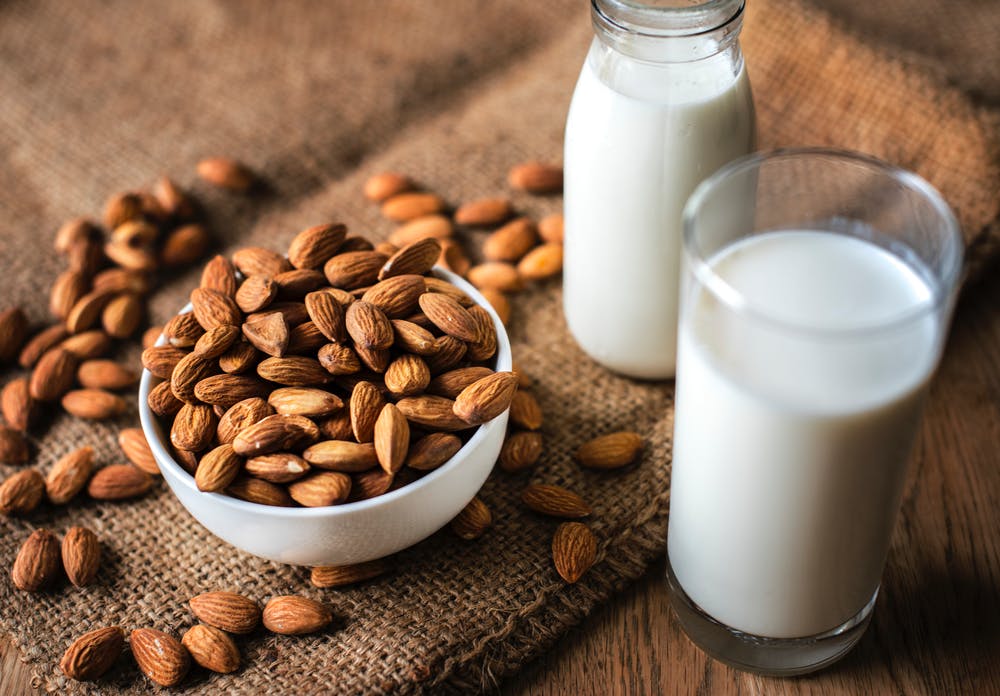Yes, it is true that a vegan diet can be a very healthy lifestyle choice (and let’s be honest, it’s better for the planet too)! Plants and plant-based foods provide a wide variety of essential nutrients, vitamins, and minerals.
If you follow a well-balanced vegan diet, you can ensure you won’t be deficient in different vitamins and minerals. That means, make sure you are eating plenty of veggies, whole grains, beans, fruit and a small portion of nuts or seeds. But for many people, junk foods like chips and sweets sneak into the diet, taking the place of other foods that are higher in vitamins and minerals.
So what nutrients could be missing from my vegan diet? For many vegans, the hardest nutrients to get in are Vitamin B12, Vitamin D, calcium, iodine, zinc, protein, (1) and even plant collagen.
Vitamin B12:
This vitamin has many functions in your body. B12 is responsible for keeping your nerves healthy, maintaining normal brain function and making your red blood cells (2)! So where do you get B12 from in your diet? The main foods that are loaded with B12 are animal products, organ meats, seafood, meat, and fortified dairy products (2). Thankfully you can also get B12 from fortified carbohydrate foods, like breakfast cereal. Sadly these foods also tend to be high in added sugars and low in fiber, making them a less healthy option. In this case, a supplement may be just what you need to get what your diet is missing.
Vitamin D:
Vitamin D has several different roles including, helping to keep your bones strong and healthy, and supporting a healthy inflammatory response. And similar to vitamin B12, vitamin D is mainly found in animal based foods. It’s found in the greatest amount in fatty fish, beef liver, cheese and egg yolks (3). You can also find it in foods that have been fortified with vitamin D, such as orange juice, soymilk and cereal.
Calcium:
You may have heard before that calcium is important for your bone health, and it is! Calcium is found in lots of different foods both animal based, like cheese and milk and plant based. Plant foods high in calcium are spinach, kale, okra, collards, soybeans, white beans, and some fortified foods like cereal and orange juice (3). And thankfully if you don’t get a lot of these foods in your diet, a supplement can help to bridge the gap to make sure you get enough calcium.
Iodine:
This is a trace mineral that you may not have given much thought to. It’s needed for your body to have normal thyroid function and for your body to produce the thyroid hormones it needs (4). A great source of iodine is iodized table salt; in fact, it’s the main food source of iodine. But keep an eye out, not all salt has iodine in it, look for salt with iodine added. Vegans, who cook at home often and use iodized salt daily, are getting enough of this essential trace mineral (4).
Zinc:
This mineral is essential for maintaining your immune system, metabolizes nutrients and helps to repair body tissues (5). Thankfully foods high in zinc come from both animal and plant based sources! It’s found in the greatest amount in meat, shellfish, legumes, seeds, nuts, dairy, eggs, and whole grains (5).
The Bottom Line:
Vegan diets can be a great choice for your health and the health of the planet. But many people following a vegan diet find it’s hard to get in all the nutrients they need each day. A high quality vegan multivitamin can provide the nutrients you may be missing. Persona Nutrition has a high quality vegan multivitamin that helps to ensure you are getting all the nutrients your body needs to lead your best life!
If you think you might be deficient in any vitamins or minerals, thankfully Persona Nutrition has you covered! We carry many different varieties of vitamins to meet your nutritional needs. Take our free 5-minute assessment to get custom-tailored recommendations based on your unique needs. Ready to have high-quality vitamins delivered right to your door? Get your personalized recommendations.













